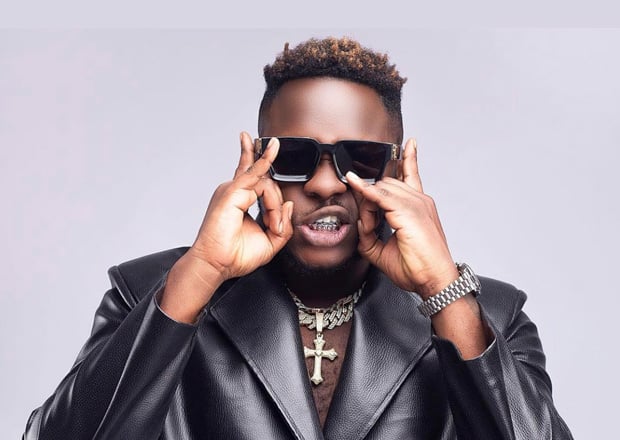The Ghanaian music scene recently witnessed a public clash between rapper Medikal and television network TV3, ignited by a controversial statement made on one of the network’s programs. The controversy stemmed from a discussion during which a guest allegedly declared the end of Sarkodie’s career, a claim that quickly sparked outrage among fans and fellow artists. Sarkodie, a highly respected and influential figure in Ghanaian music, has cultivated a substantial following throughout his career, achieving both commercial success and critical acclaim. The comment, therefore, was interpreted as a blatant disrespect of his contributions and legacy, fueling a wave of criticism directed at TV3 for providing a platform for such a disparaging remark. Medikal, known for his outspoken nature and his close relationship with Sarkodie, emerged as a prominent voice in the backlash against the network.
Medikal’s response was swift and decisive, taking to his X account (formerly Twitter) to publicly condemn TV3 and announce a ban on the network playing his music. His statement expressed palpable anger and disappointment at the network’s perceived lack of editorial oversight. He articulated his belief that the comment was not only an insult to Sarkodie personally but also a slight against the entire Ghanaian music industry, which holds Sarkodie in high esteem. Medikal’s decision to prohibit TV3 from airing his music underscores the seriousness with which he viewed the incident, effectively severing ties with the network in protest. This action demonstrates a strong sense of solidarity with Sarkodie and highlights the importance of respecting artistic legacies within the industry.
The incident involving TV3, Sarkodie, and Medikal provides a glimpse into the dynamics of the Ghanaian music industry and the power of social media in amplifying artist voices. Medikal’s public denunciation of TV3 underscores the increasing influence artists wield in shaping public discourse and holding media outlets accountable. His actions serve as a reminder of the responsibility media platforms bear in ensuring balanced and respectful dialogue, particularly when discussing public figures and their contributions. By leveraging his platform, Medikal effectively mobilized public sentiment against TV3, transforming a seemingly isolated incident into a broader conversation about media ethics and respect for artistic achievement.
This episode also highlights the growing importance of artist solidarity within the music industry. Medikal’s staunch defense of Sarkodie demonstrates a camaraderie that extends beyond mere professional respect. It suggests a deeper understanding of the challenges faced by artists navigating the complexities of the media landscape and the importance of mutual support in the face of criticism. Medikal’s decision to take a stand against TV3 not only protects Sarkodie’s reputation but also sends a message to other media outlets about the potential consequences of broadcasting unsubstantiated and damaging claims about artists.
The controversy surrounding Sarkodie’s alleged career demise and Medikal’s subsequent reaction serves as a case study in how a single comment can escalate into a major public debate, fueled by the immediacy and reach of social media. This incident underscores the power of platforms like X to amplify artist voices and enable them to hold media organizations accountable. It also demonstrates the importance of careful consideration and editorial oversight on the part of media outlets to avoid broadcasting potentially inflammatory or disrespectful content.
Ultimately, this incident highlights the complex interplay between artists, media outlets, and public perception in the digital age. It showcases the increasing agency of artists in shaping public discourse and protecting their image and legacy. Medikal’s actions serve as a potent reminder that artists are not passive recipients of media coverage but active participants in shaping their narratives and holding media outlets accountable for their reporting. The long-term implications of this incident on the relationship between Ghanaian artists and TV3 remain to be seen, but it undoubtedly marks a significant moment in the ongoing evolution of media engagement and artist advocacy within the Ghanaian music industry.














